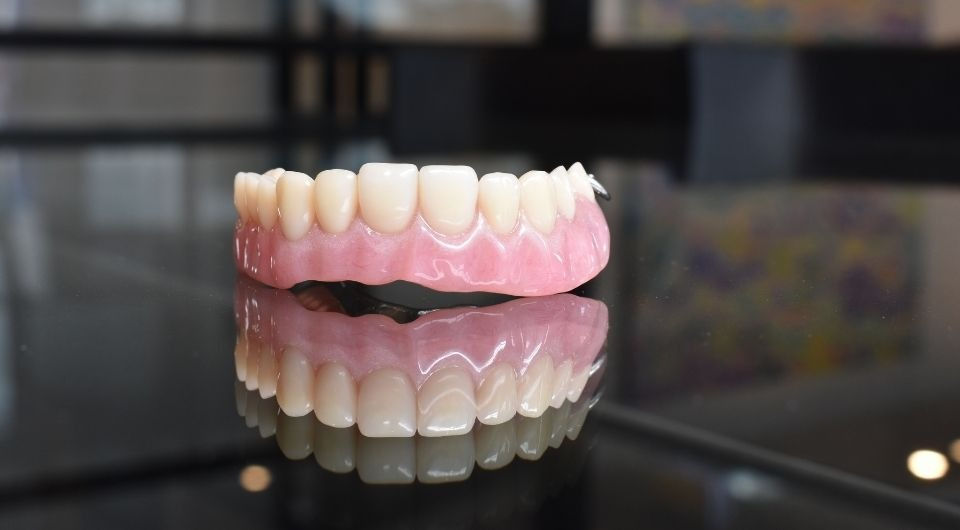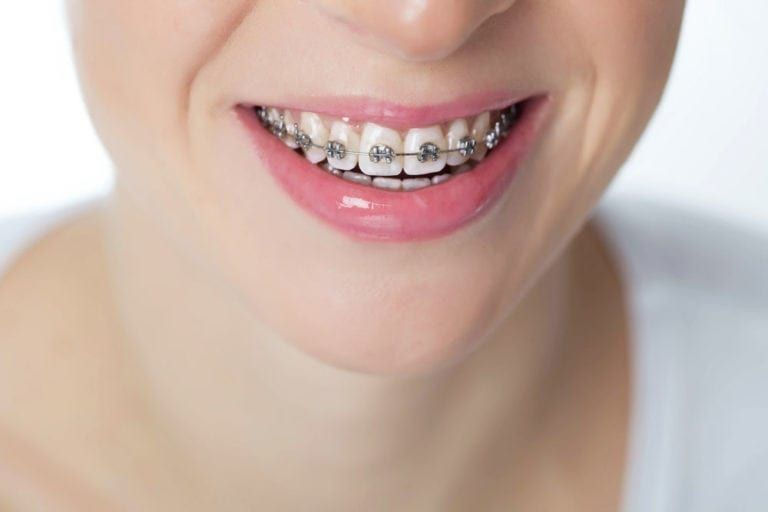How to Prevent Common Denture Problems and Discomfort
- dclinicdubai
- Mar 11
- 4 min read
If you're considering teeth dentures in Dubai, it's crucial to understand that while dentures can significantly enhance your smile and quality of life, they can also come with challenges. Issues like discomfort, slippage, and irritation can occur, especially in the early stages of wearing dentures. This guide explores common denture problems and offers practical solutions to help you enjoy a comfortable, pain-free experience with your new smile.

1. Proper Fitting: The Key to Comfort and Functionality:
One of the most common issues that denture wearers face is poor fit, which can lead to discomfort, irritation, and difficulty eating or speaking.
The Truth:
Customized Fit: Dentures should be custom-made to fit the unique shape and size of your mouth. Ill-fitting dentures may slide, cause sores, or make it difficult to chew.
Regular Adjustments: Over time, your gums and bone structure may change, causing your dentures to loosen. Regular visits to your dentist ensure that your dentures are properly adjusted, preventing discomfort and improving function.
Seek Professional Help: If your dentures feel uncomfortable or if you notice slippage, it’s essential to visit your dentist immediately. They can make necessary adjustments to ensure the dentures fit snugly and comfortably.
2. Proper Cleaning and Hygiene: Preventing Damage and Bacteria:
Maintaining good oral hygiene is crucial to avoiding common problems like plaque buildup, bad breath, and gum irritation. Poor cleaning habits can lead to infections and discomfort.
The Truth:
Daily Cleaning: Clean your dentures thoroughly every day to remove food particles, bacteria, and plaque. Use a soft-bristled brush and a non-abrasive denture cleaner to avoid damaging the surface.
Rinse After Meals: After eating, rinse your dentures with water to remove any food debris. This helps prevent bacteria buildup and keeps your dentures fresh.
Avoid Harsh Chemicals: Avoid using regular toothpaste on dentures as it can be too abrasive. Instead, use products designed specifically for denture care.
Soak Overnight: Place your dentures in a denture solution or warm water overnight to keep them moist and in good condition.
3. Preventing Sore Spots and Gum Irritation:
Sore spots on your gums and irritation are common issues, particularly during the first few weeks of wearing dentures. These problems can be managed with proper care and adjustments.
The Truth:
Gentle Adjustment Period: When you first get dentures, your gums need time to adjust to the new appliance. You may experience some discomfort or irritation. However, this should gradually subside.
Avoid Tightening: Avoid attempting to adjust the fit of your dentures yourself. Always consult your dentist for any necessary adjustments.
Use Denture Cushions: If irritation persists, over-the-counter denture cushions or pads can offer temporary relief by creating a soft barrier between your gums and dentures.
Pain Relief Options: If sore spots develop, applying a denture adhesive or using soothing gels recommended by your dentist can help alleviate pain and reduce irritation.
4. Preventing Dry Mouth and Discomfort:
Dry mouth is a common problem for denture wearers, especially for those who wear full dentures. Saliva helps to keep your mouth moist and assists with the overall comfort of dentures.
The Truth:
Stay Hydrated: Drinking plenty of water throughout the day can help combat dry mouth and prevent discomfort. Staying hydrated also ensures that your dentures stay in place and function properly.
Saliva Substitutes: If you're still experiencing dry mouth, consider using saliva substitutes available over-the-counter. These products help moisten the mouth and make wearing dentures more comfortable.
Gum Stimulators: Chewing sugar-free gum or sucking on sugar-free candies can help stimulate saliva production, making it easier to wear your dentures throughout the day.
5. Avoiding Damage and Cracking:
Dentures, though durable, can crack or break if not handled with care. Proper storage and cleaning are essential to extending the lifespan of your dentures and preventing damage.
The Truth:
Handle with Care: Always handle your dentures gently to avoid dropping or damaging them. If dropped, dentures can crack or break, leading to additional costs for repairs or replacements.
Proper Storage: When you’re not wearing your dentures, always store them in a safe, moist environment. Use a denture container or soak them in warm water or a denture cleaning solution to prevent them from drying out and losing their shape.
Avoid Hot Water: Never clean your dentures with hot water, as it can warp the material. Always use lukewarm or cool water for cleaning.
6. Speaking and Eating with Confidence:
Wearing dentures can initially affect your ability to speak clearly or chew certain foods. With patience and practice, most denture wearers can adjust to these challenges.
The Truth:
Speech Practice: If you’re having trouble speaking clearly with your dentures, practice reading aloud or speaking slowly until you get used to the sensation of your dentures in your mouth.
Chewing Techniques: In the beginning, try chewing softer foods and avoid sticky or hard foods that might dislodge your dentures. As you become more accustomed to wearing dentures, you can gradually reintroduce these foods.
Take Your Time: Don’t rush the process. Give yourself time to adjust to your new dentures and understand how they affect your speech and chewing patterns.
7. Maintaining Regular Dental Checkups:
Even though dentures are not real teeth, regular dental checkups remain an essential part of maintaining your oral health. Your dentist can spot potential issues early and help prevent discomfort.
The Truth:
Routine Checkups: Regular visits to your dentist will ensure that your dentures fit correctly, preventing any potential discomfort or health issues from developing.
Oral Health Monitoring: During checkups, your dentist will also monitor your gums and remaining natural teeth for any signs of infection, gum disease, or bone loss.
Adjustments and Repairs: Over time, your dentures may require adjustments due to changes in your mouth structure. Regular checkups help ensure that your dentures continue to perform optimally.
Conclusion:
By following these guidelines and maintaining a proactive approach to care, you can minimize common teeth denture problems in Dubai and enjoy a comfortable, functional smile. Regular cleaning, professional checkups, and attention to fit will ensure that your dentures serve you well for years to come. If you ever experience significant discomfort or problems with your dentures, don’t hesitate to consult your dentist to address the issue promptly and effectively.


Comments